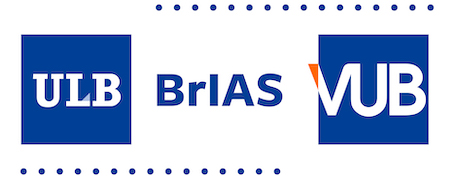Re-imagining agri-food system transformations: Enlarging and enriching time horizons
How can decision makers not only learn from the future but also from the past?
The Food and Agriculture Organisation of the United Nations (FAO) and the Brussels Institute for Advanced Studies (BrIAS) invite you to the workshop 'Reimagining agrifood system transformation: Enlarging and enriching time horizons'. During the workshop we will reflect on the value of historical insights and inquiry in the practice of foresight planning on food system transformations. This conference is co-convened by prof. dr. Nel de Mûelenaere (Vrije Universiteit Brussel and BrIAS) and dr. Rathana Peou Norbert-Munns (FAO), in collaboration with BrIAS-fellows dr. Leslie Lipper (UC Berkeley), prof. dr. Jessica Dijkman (Utrecht University), dr. Matthew Hannaford (University of Lincoln), prof. dr. Pierre Purseigle (University of Warwick) and Nasir Uddin (ActionAid Bangladesh).
Pleaser register here before the 10th of April 2023.
Programme
|
9.30-10:00 |
Registration and coffee |
|
10:00-10:15 |
Welcome Nel de Mûelenaere, Professor of History, Vrije Universiteit Brussel and Academic Co-director of BrIAS Raschad Al-Khafaji, Director, FAO Liaison Office with the European Union and Belgium Rathana Peou-Norbert Munns, Climate Foresight and Scenarios Development Expert, UN FAO and BrIAS-fellow |
|
10:15-10:45 |
Enlarging time horizons for food system transformations: integrating historical thinking in foresight planning Matthew Hannaford, Senior Lecturer in Geography, University of Lincoln and BrIAS-fellow Nel de Mûelenaere, Professor of History, Vrije Universiteit Brussel and Academic Co-director of BrIAS |
|
10:45-10.55 |
History and foresight planning: a practitioner’s view A M Nasir Uddin, Manager, Disaster Risk Reduction, ActionAid Bangladesh and BrIAS-fellow |
|
10:55-11:10 |
Next steps: pilot projects Leslie Lipper, Senior Consultant, Cornell University and BrIAS-fellow |
|
11:10-11:50 |
Mapping initiatives and partners, sharing reflections Lorenzo Bellu, Senior Economist, Agricultural Development Economics Division, FAO Bram Peters, Programme Facilitator, Foresight 4 Food Initiative, Oxford University Just Dengerink, Food Systems Advisor, Wageningen Center for Development Innovation Lale Lee, Senior Sustainability Consultant, Systems Innovation Copenhagen Hub |
|
11:50-12:00 |
Closing remarks Stefanos Fotiou, Director, UN Food Systems Coordination Hub and FAO Office of Sustainable Development Goals |
|
12:00-13:30 |
Networking lunch |
Vision text
Never in human history did global food production per inhabitant exceed the current output. It already surpasses nutritional requirements and is continuing to rise however food crisis and malnutrition persists. Yet, our global food system is at risk. The global pandemic and the Russian invasion of Ukraine have exposed strong vulnerabilities in our food production and supply systems. In the next decades, population growth, diet changes, environmental degradation, natural resource scarcity, mass migration, military conflicts and climate change will further threaten food security in many parts of the world.
The future of our food system is indeed highly uncertain; but that does not mean we cannot plan for it and conceive transformative actions for a more climate adapted and resilient food system. To that end, foresight planners are scanning time horizons for impending transformations and writing multiple, plausible scenarios decision makers can plan for.
While focused on the future, foresight planning also depends on historical knowledge. In fact, research has shown that while imagining the future, the human brain immediately turns to the past (Inayatullah, 2018). Marshal Mcluhan has famously called this the rear-mirror effect, proclaiming that ‘we march backwards into the future’. Future studies could indeed benefit from this reflex to rely on past experiences to plan for future risks. For decades, social-economic historians have analyzed how past famine-prone societies coped with sustainability crises. Historical famine research has explored the specific circumstances that led to food insecurity, demonstrating that famine is a human-made, evitable crisis. And by looking at the different ways specific communities dealt with and recovered from food disasters, historical research is providing clues to what made societies resilient or vulnerable in times of crises.
By integrating the historical dimensions of hunger, malnutrition, rural livelihood, agriculture, and food policies, into the decision-making process of today, not only could we address but prevent future food crises. To that end, BrIAS has invited renowned historians, humanitarian workers and foresight planners to think about making our local, national and global food systems more resilient in times of uncertainty, crises and complex risks. This workshop will present their key reflections to promote discussions and drive changes.
What are the lessons learnt from past interventions, disasters and recovery that could feed transformative actions in our present time? What could be learnt from previous regional and global food markets, food waste, change of lifestyles, food innovation, agriculture practices, drivers of food diet changes, disaster recovery, food governance and politics? How have societies dealt with specific food system risks and disasters in the past and how can we use this knowledge to plan, prevent future shocks and build back better our future food system? Which local, national and international public and private interventions and security mechanisms were/will be vital for the prevention and recovery from food crises? How did/will food crises impact various social/national/ethnic groups and gender/age categories differently? Why do some societies and groups within societies recover better from food crises than others? Above all, how can we avoid unintended consequences and hear narratives from local voices?
